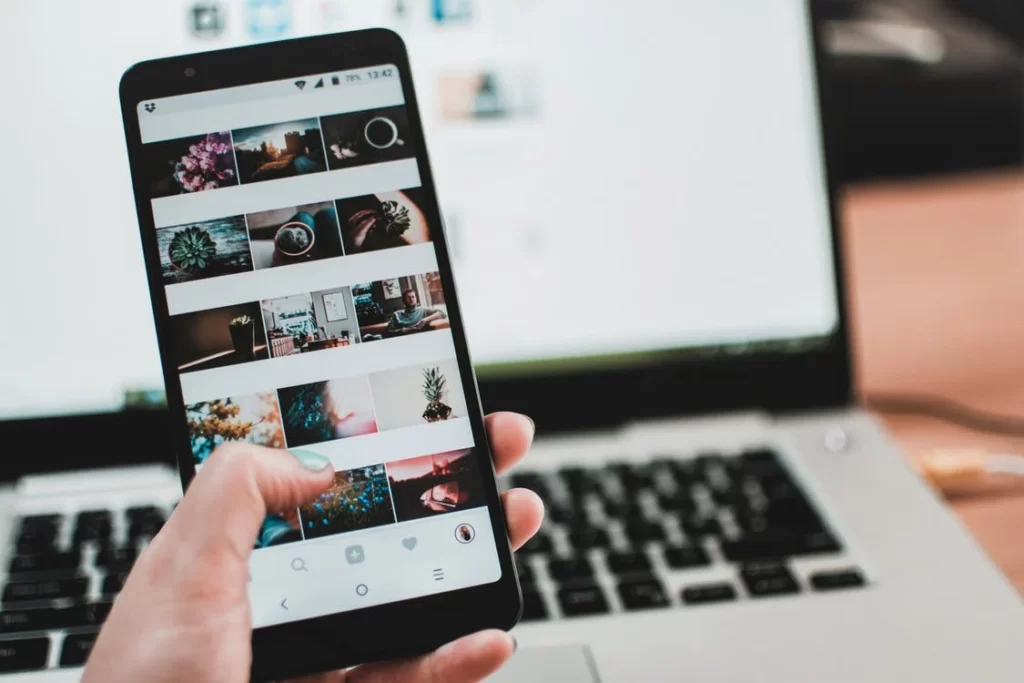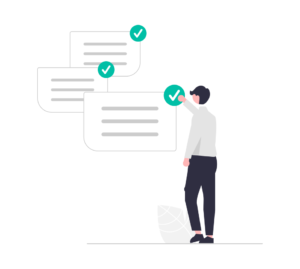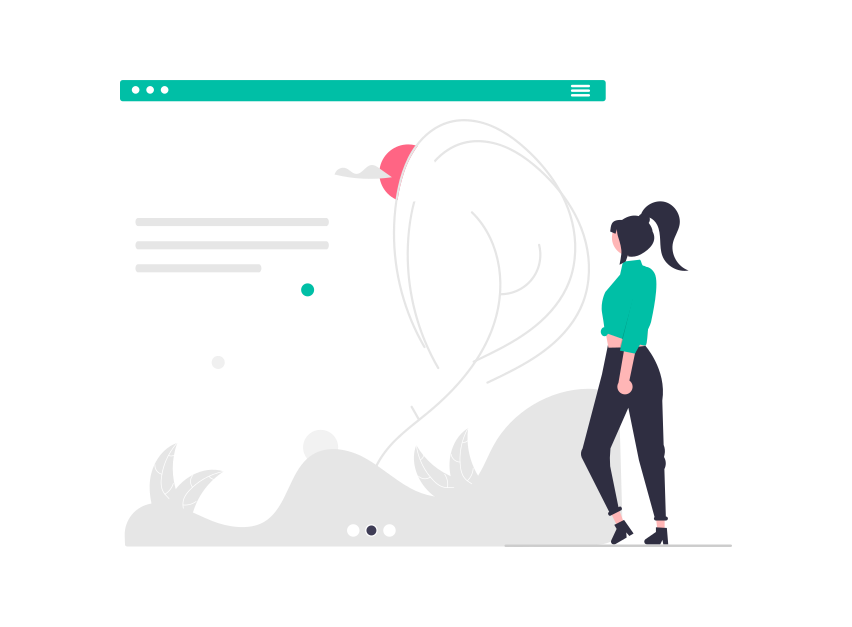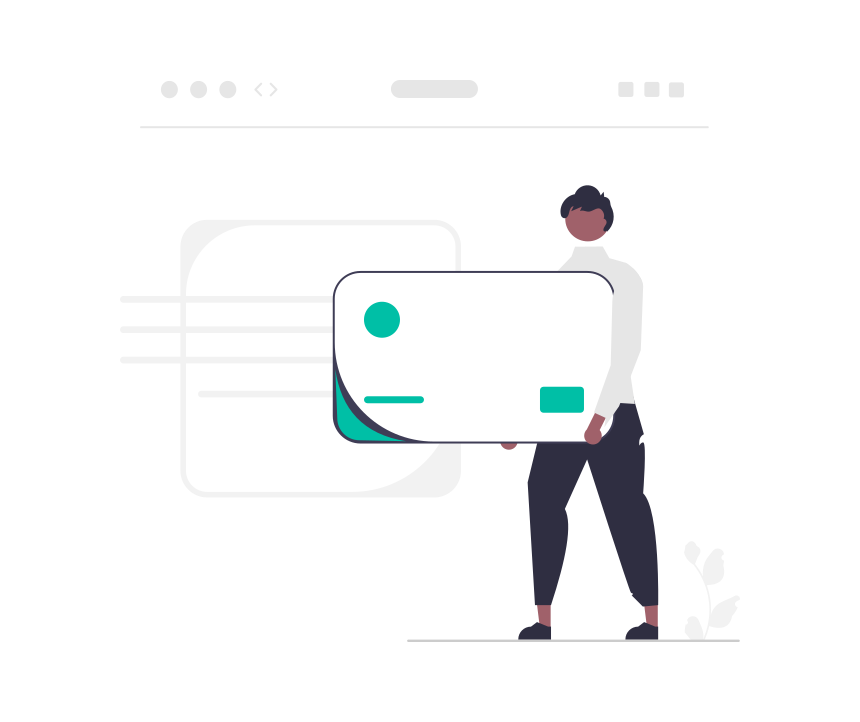Do I Need a Website if I Already Have a Facebook Page?

It’s true that social media sites like Facebook and platforms like Google’s Business Profile or even Yelp are valuable marketing channels that can help provide information about your business. But the truth is that these platforms offer a very limited experience for your customers, and many elements of that experience are completely out of a business owner’s control. As a digital marketer, people often ask me to weigh in on having a website vs. a Facebook page, for example. “Why should I get a website if I’m already on social media?” they’ll say.
The truth is, it’s not ideal for any business to rely on these platforms — yet so many do. Research shows that 71 % of small businesses have a website. That leaves nearly 30% of businesses with a very limited amount of control and reach.
I’ve developed the “3 C’s” Framework below to explain why you shouldn’t consider social media platforms a replacement for a website.

Control
Your business’s website can be considered your digital headquarters. If you’re only relying on a Facebook page, you’re renting real estate — and you have no control over anything happening on the website. By investing in a custom website for your business, you’ve now got the power to customize the small things such as color palette and fonts and the big-ticket items like content placement and where users are being driven to.
If you’re doing any kind of marketing, even by word of mouth, you’re going to need a place to send people so they can find out more. In 2022 and beyond, social media is hardly the best place to do that considering that users are leaving these platforms for greener pastures. If you’re only sending them to Facebook, there’s no guarantee that you’ll be able to put the right message in front of them.
Additionally, algorithms are becoming a major hurdle on every platform. For example, it’s completely up to Instagram whether or not users will see your content, even if they’re following your Profile. If you’re just starting out, customers might not be able to find you at all. That post you spent two hours working on? Your most loyal fans and followers might see it after two hours of scrolling. That flash sale you shared on Instagram? Forget about it.
Ownership might not be an obvious concern for many small businesses. However, when you invest in creating your own platform, you maintain that ownership over your business and customer data unlike social media profiles, which are subject to removal or even hostile takeovers by bad actors.
If you run an e-commerce store, owning your website may decrease the amount of fees you’ll need to pay out to vendors and partners.
Email marketing, namely your subscriber lists, are one of the most valuable digital assets you can own. Email subscribers are said to be as much as 15 times more valuable than social media followers in terms of how often they make a purchase. In fact, you can earn $36 for every $1 spent on email marketing. However, those opportunities are only possible if your business has a website with a newsletter and email capture in place.

Credibility
In a previous article, we talked about how websites generate credibility for businesses in a big way.
56% of people state that they won’t trust a business without a website. Websites are the homepage for your business; it’s the definitive source online for your contact information, hours, and what you do.
Websites are also a great tool to show customers that you’re trustworthy to do business with. Features like testimonials, before-and-after photos, case studies , and blog posts can show off your expertise and entice users into making a purchase. And although platforms like Google and Facebook give businesses some tools to enter information, it’s limited; even a business description there has a character limit.
In traditional outbound marketing mediums, like TV and radio, print, and the like – consumers will most likely search for your brand online if it piques their interest. If you don’t have a website, they’ll have nowhere to go and you lose an important opportunity to engage them further.
My favorite analogy on this comes from the folks over at MarketingSolved, who say this:
A Facebook page is… a representation of your online store. A booth at an online trade show if you will. At this online trade show, you showcase what your business is about.
But most importantly, at all trade shows, you distribute your business card. Your business card on Facebook or any other social media platform is a direct link to your website.

Conversions
For most small businesses, the primary goal for digital marketing is to connect with consumers in hopes that this will lead to more sales. A website should be the foundation of your digital marketing plan. Not only can your website display all of your products and services, it can also capture information about the people who might be interested. With the right features, your website can act as a 24/7 salesperson and concierge, answering any questions that prospective customers might have and directing them on how they can buy from you.
In addition, a well-built website will include analytics and tracking, which are crucial to a well-formed marketing plan. These analytics can give you more insight into your customer’s behaviors, such as:
- Which product or service pages are the most popular?
- Which product or service pages are the least popular?
- Where are users coming to your website from?
- How did they find your website?
- How long are users staying on your website?
- Which questions or help articles are the most used?
- What is the top-visited page on your website?
93% of all online experiences start with a search engine. In a 2017 report, we learned that a majority of customers only use two things to discover local businesses: search engines and websites. The most dominant search engine in the U.S., Google, stated that they do not consider social media profiles when ranking businesses; in fact, a search for your business’s name will most likely not surface your social media profiles unless there’s no further information about you online.
The bottom line is clear: if you’re only relying on social media, you’re missing out on more than half of all possible customers.


